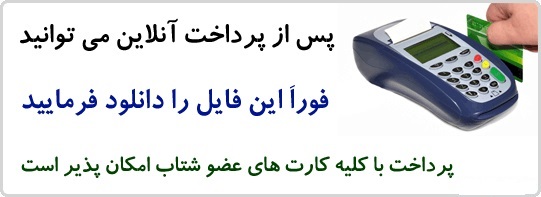

لینک دانلود و خرید پایین توضیحات
فرمت فایل word و قابل ویرایش و پرینت
تعداد صفحات: 12
W.H.O
About WHO
WHO is the directing and coordinating authority for health within the United Nations system. It is responsible for providing leadership on global health matters, shaping the health research agenda, setting norms and standards, articulating evidence-based policy options, providing technical support to countries and monitoring and assessing health trends.
History of WHO
When diplomats met to form the United Nations in 1945, one of the things they discussed was setting up a global health organization.
WHO’s Constitution came into force on 7 April 1948 – a date we now celebrate every year as World Health Day.
The WHO agenda
WHO operates in an increasingly complex and rapidly changing landscape. The boundaries of public health action have become blurred, extending into other sectors that influence health opportunities and outcomes. WHO responds to these challenges using a six-point agenda. The six points address two health objectives, two strategic needs, and two operational approaches. The overall performance of WHO will be measured by the impact of its work on women's health and health in Africa.
1. Promoting development
During the past decade, health has achieved unprecedented prominence as a key driver of socioeconomic progress, and more resources than ever are being invested in health. Yet poverty continues to contribute to poor health, and poor health anchors large populations in poverty. Health development is directed by the ethical principle of equity: Access to life-saving or health-promoting interventions should not be denied for unfair reasons, including those with economic or social roots. Commitment to this principle ensures that WHO activities aimed at health development give priority to health outcomes in poor, disadvantaged or vulnerable groups. Attainment of the health-related Millennium Development Goals, preventing and treating chronic diseases and addressing the neglected tropical diseases are the cornerstones of the health and development agenda.
2. Fostering health security
Shared vulnerability to health security threats demands collective action. One of the greatest threats to international health security arises from outbreaks of emerging and epidemic-prone diseases. Such outbreaks are occurring in increasing numbers, fuelled by such factors as rapid urbanization, environmental mismanagement, the way food is produced and traded, and the way antibiotics are used and misused. The world's ability to defend itself collectively against outbreaks has been strengthened since June 2007, when the revised International Health Regulations came into force.
3. Strengthening health systems
For health improvement to operate as a poverty-reduction strategy, health services must reach poor and underserved populations. Health systems in many parts of the world are unable to do so, making the strengthening of health systems a high priority for WHO. Areas being addressed include the provision of adequate numbers of appropriately trained

دانلود مقاله درباره W H O